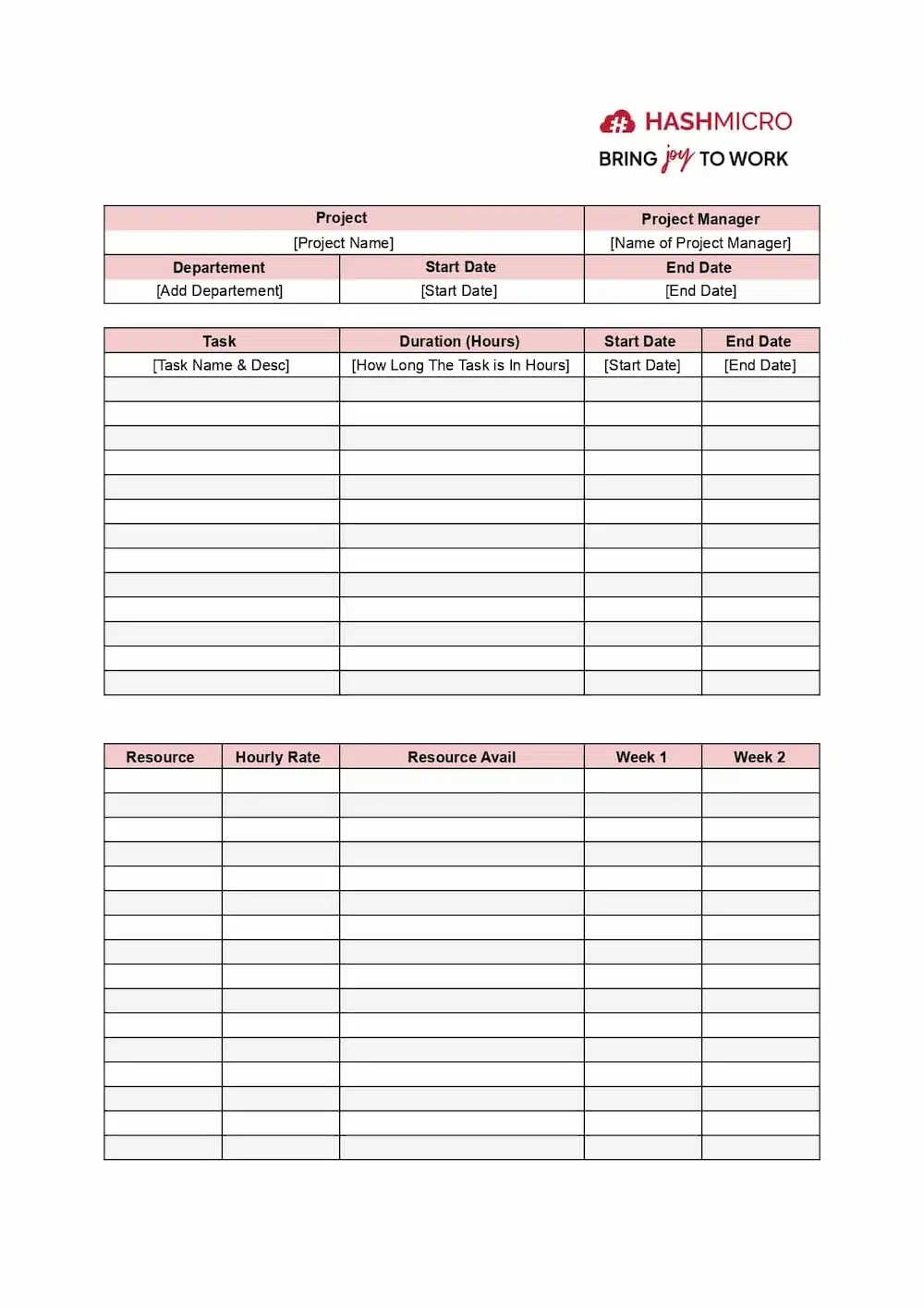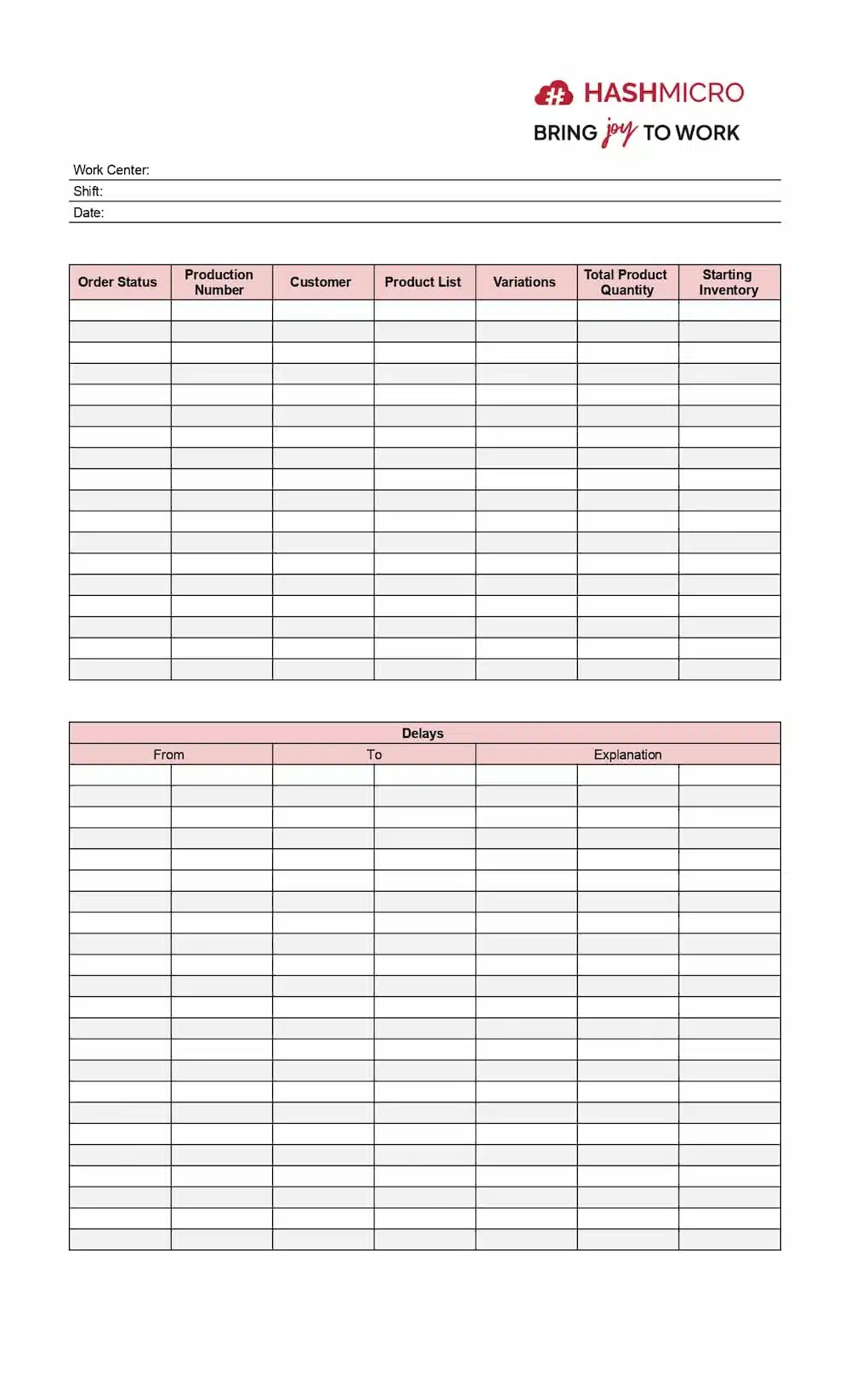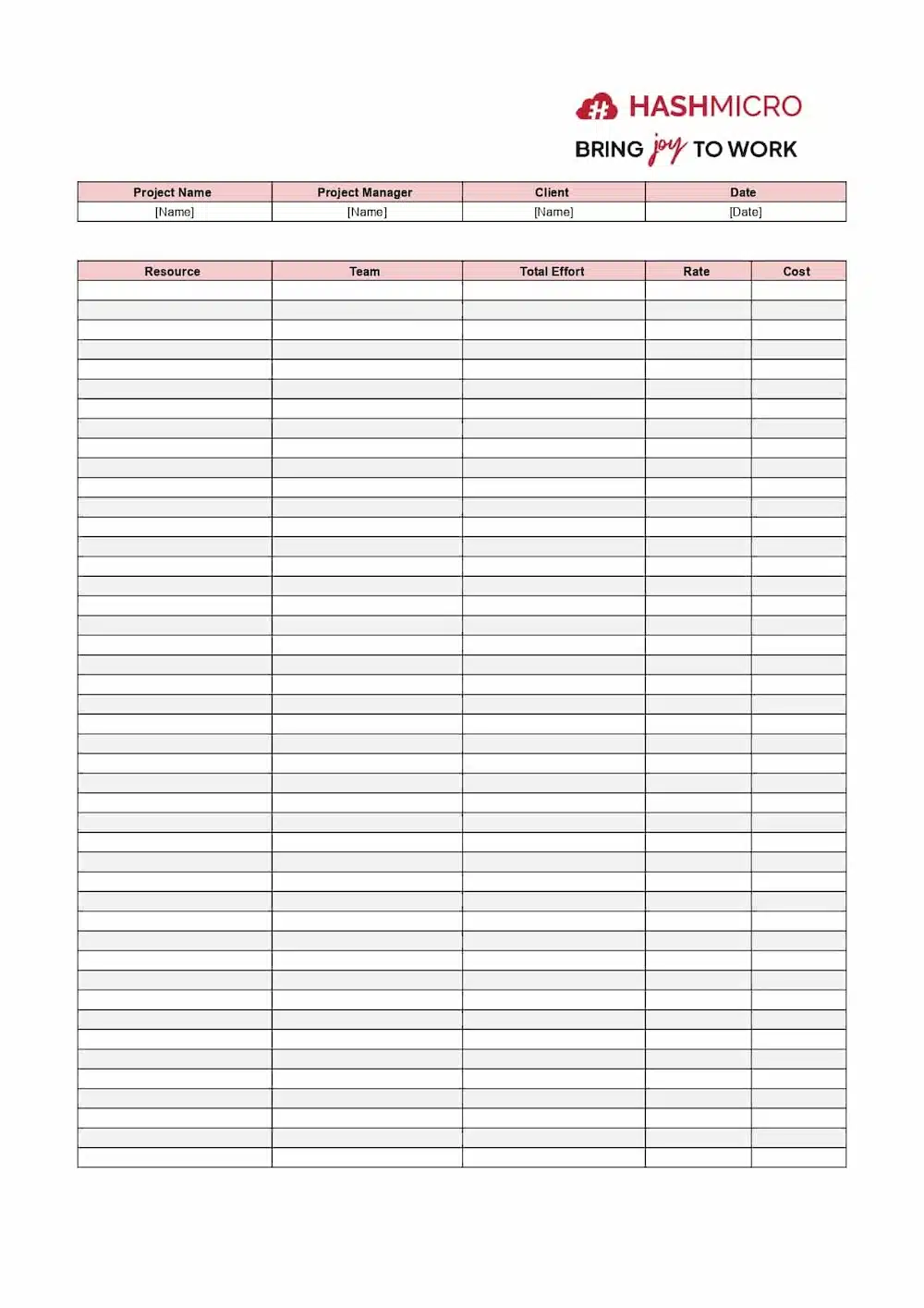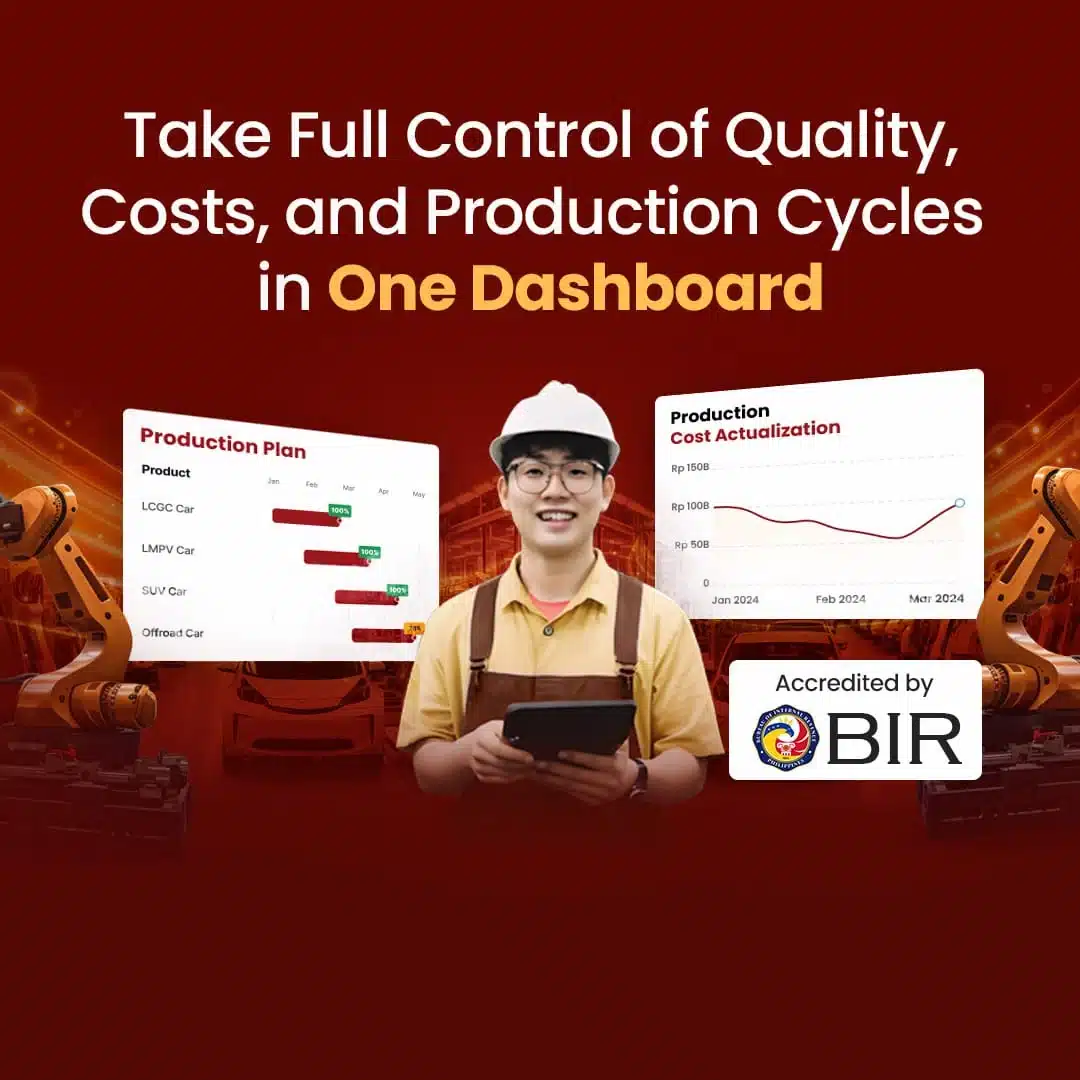Understanding and optimizing production processes is crucial for maintaining a competitive edge in today’s fast-paced business environment. This is where production reports come into play they are a vital tool that provides a clear snapshot of operational efficiency and output.
Whether you’re tracking daily workflows or making strategic decisions, a well-structured production report empowers managers and executives to identify trends, address bottlenecks, and drive success. Are you curious how to unlock this powerful resource’s full potential?
Suriin ang aming komprehensibong gabay upang matuklasan kung ano ang bumubuo ng isang mahusay na ulat ng produksyon, ang mga pangunahing layunin nito, at kung paano maaaring gawing mas madali ng mga template ang proseso ng iyong pag-uulat.
Table of Content
Content Lists

Key Takeaways
|
What is a Production Report?
A production report is a comprehensive document that captures detailed information about the progress and performance of a production process within a specific timeframe.
It typically includes key metrics such as the quantity of goods produced, raw materials used, time taken, and any issues encountered during production.
These reports are essential for evaluating efficiency, identifying potential bottlenecks, and ensuring that operations align with set targets. By providing a clear overview of the production process, a well-prepared report helps stakeholders make informed decisions and optimize workflows.
What Makes a Good Production Report?
A good production report isn’t just about recording data. It’s a tool that helps teams analyze performance and find ways to improve. To be truly effective, a production report should include the following key elements:
- Straightforward and easy to understand: A production report should be simple and straightforward, presenting information in a way that’s easy to follow. Avoid using technical terms or long explanations that might confuse readers. Instead, focus on highlighting the most important details clearly so everyone can understand the key points quickly.
- Accurate and relevant information: Accuracy is essential in any production report. Incorrect or irrelevant data can lead to poor decisions. The report should focus on key details, like production volumes, material usage, or downtime, ensuring the information provided is reliable and directly related to the production process.
- Meaningful data and explanations: A strong production report doesn’t just list numbers it provides context and meaning. For example, if there’s a delay in production, the report should explain why it happened and suggest ways to address the issue. This approach makes the report more practical and helpful in improving processes.
- Timely and consistent updates: For a production report to be effective, it needs to be shared on time. Whether the report is prepared daily, weekly, or monthly, regular updates ensure that the information stays relevant and allows teams to address issues or track progress without delays.
By including these elements, a production report becomes more than just a record it becomes a valuable resource for improving processes, solving problems, and achieving production goals.
Understanding the Purpose of a Production Report

A production report plays a vital role in managing and improving operational processes. It serves as more than just a record of activity it provides the insights needed to ensure production goals are met and challenges are addressed effectively. Here are the key purposes of a production report:
1. Tracking performance
The primary purpose of a production report is to provide a comprehensive view of how production activities are progressing and how effectively resources are being utilized over a specific period. It achieves this by documenting key metrics such as the total output produced, the efficiency of operations, and any instances of downtime or interruptions.
By integrating data within a manufacturing ERP system, businesses can evaluate whether their processes are operating as planned or if there are any areas requiring immediate attention.
For example, consistent tracking of production output through a manufacturing ERP can reveal whether targets are being met, while monitoring efficiency helps identify areas where time or resources may be wasted.
2. Identifying areas for improvement
A production report is essential for spotting inefficiencies or bottlenecks hindering productivity. Businesses can identify issues like delays, resource overuse, or equipment downtime by analysing data.
For example, if one production line consistently underperforms, the report can highlight potential causes, such as machinery issues or staffing shortages.
With this insight, targeted solutions like equipment repairs or workflow adjustments can be implemented. This proactive approach helps optimize operations, reduce waste, and improve overall efficiency, ensuring smoother production processes over time.
3. Ensuring accountability
A production report with clear and accurate records plays a crucial role in holding teams and departments accountable for their respective responsibilities. By providing a reliable and well-documented overview of performance, it helps ensure that everyone involved in the production process meets the standards and targets set.
The transparency offered by these reports is essential, as it provides objective data that can be used to assess individual and team performance. This factual basis helps identify areas where performance may fall short and allows for addressing any discrepancies or issues fairly and constructively.
4. Facilitating Informed decision making
A well-prepared production report gives managers and stakeholders the information they need to make strategic decisions. From resource allocation to process adjustments, the data provided helps guide choices that align with business goals.
5. Supporting long term planning
Production reports are valuable for tracking day-to-day operations and play a key role in shaping the future of the business. These reports offer valuable insights into areas of consistent growth or potential challenges by analyzing the trends and patterns observed over time.
This data becomes instrumental in developing long-term strategies, such as planning for increased production capacity, making informed decisions about resource allocation, or identifying opportunities for process innovation.
Production Report Example Outline
Production managers rely on production reports to monitor operations and improve efficiency. These reports track various manufacturing KPIs, providing valuable insights into performance. While production reports can include a wide range of metrics, they typically focus on a core set of key indicators.
Manufacturing KPIs are measurable metrics that assess the efficiency of the production process. They should align with strategic goals, be quantifiable, and provide actionable insights. Below is an example of a project report highlighting essential manufacturing KPIs that production managers commonly track.
- Production efficiency: The primary objective of a production report is to maximize efficiency in manufacturing processes. This means achieving the highest possible output without compromising product quality, increasing production costs, or extending the production timeline.
- Production costs: A comprehensive production cost report should include all expenses incurred in manufacturing a product. This includes direct costs, such as raw materials and labor, as well as indirect costs, like rent and overhead. By summing these expenses, businesses can determine the total production cost.
- Production volume: Production volume measures the number of units manufactured within a specific period. This is a key metric for assessing manufacturing efficiency and helps production managers determine the factory’s overall output capacity. The planned production volume should align with the organization’s production budget.
- Production downtime: Production downtime refers to periods when manufacturing operations are halted. This includes both planned (e.g., maintenance) and unplanned (e.g., equipment failure) downtime. Minimizing downtime allows production managers to enhance operational efficiency and maximize productivity.
- Work-In-Progress (WIP): Work-in-progress (WIP) represents the costs associated with unfinished goods still in the production process. This includes direct labor costs, raw materials, and manufacturing overhead. WIP differs from finished goods, which are products that are fully completed and ready for sale.
- Throughput rate: The throughput rate measures how many units are successfully produced within a given timeframe. This KPI helps analyze and compare manufacturing efficiency across different equipment, production lines, and factories. It is calculated by dividing the total number of quality units produced by the time period in which they were made.
- Capacity utilization: Capacity utilization gauges how much of a factory’s available production capacity is actively being used. This metric helps assess both current efficiency levels and future scalability. To calculate it, divide the total capacity used within a specific period by the total available production capacity, then multiply by 100 to get a percentage.
- First-Time Right (FTR): First-Time Right (FTR) is a quality metric derived from Total Quality Management (TQM) and Six Sigma methodologies. It ensures that manufacturing processes are executed correctly on the first attempt, minimizing defects, rework, and unnecessary costs. Higher FTR rates indicate improved process efficiency and product quality.
- Maintenance costs: Maintenance costs encompass all expenses related to equipment upkeep and preventive maintenance. This KPI allows production managers to track machine performance over time while optimizing equipment availability and minimizing costs. The maintenance unit cost is determined by dividing total maintenance expenses within a given period by the number of units produced in that same timeframe.
How to Tackle Challenges in Static Production Reporting
Obtaining pertinent and up-to-date information is essential for businesses to make swift and precise decisions based on data. However, as many managers are aware, conventional static reporting techniques come with several drawbacks. There are specific challenges associated with static reporting that must be addressed, along with potential solutions through an integrated manufacturing software system.
Challenge 1: Time-Consuming Reporting
Generating reports can be lengthy as business users often rely on IT or finance teams, leading to delays, especially for custom requests. Executives need real-time data for timely decision-making, but IT teams are often overwhelmed with priorities.
Solution: Empower end users with reporting access through business intelligence tools, allowing them to generate and automate reports directly.
Challenge 2: Spreadsheet Manipulation
Data is often scattered across multiple systems, requiring manual combination in spreadsheets, which are error-prone and hard to manage.
Solution: Implement an integrated system that consolidates data from various sources into a single dashboard, minimizing errors and ensuring everyone accesses the latest information.
Challenge 3: Insufficient Insight
Static reports provide only basic summaries, lacking the detail needed for identifying issues. Custom or interactive reports are necessary to explore underlying data and uncover missed opportunities.
Solution: Utilize dynamic reporting that allows users to drill down into data and ask questions for deeper insights.
Challenge 4: Delayed Action
Limited report details can leave employees unsure of how to respond, reducing their sense of ownership and initiative.
Solution: Provide team members with controlled access to relevant data, empowering them to independently explore insights and take timely action.
Challenge 5: Office Dependency
Managers who travel or work remotely need flexible access to data. Being tied to an office can hinder productivity.
Solution: Offer mobile cloud access to data, enabling managers to retrieve and analyze information from anywhere, facilitating quick decision-making.
Free Production Reporting Templates
Capacity Planning
You can download the proforma invoice template for excel and docs here. Just click the button below.
Capacity Planning


Production Schedule
You can download the proforma invoice template for excel and docs here. Just click the button below.
Production Schedule


Resource Plan
You can download the proforma invoice template for excel and docs here. Just click the button below.
Resource Plan


Conclusion
Production reports are essential for businesses seeking to improve operational efficiency and make data-driven decisions. These reports offer valuable insights into production processes, helping companies identify inefficiencies, spot trends, and optimize resource allocation.
To simplify the production reporting process and ensure accuracy, investing in a robust solution like manufacturing software from HashMicro can make a significant difference. This software integrates key aspects of production management, enabling smooth data flow and more informed decision-making.
HashMicro manufacturing software provides an all-in-one platform that streamlines the creation, tracking, and analysis of production reports, helping businesses stay competitive and agile. Its user-friendly interface and customizable features allow companies to tailor reports to their unique needs.
HashMicro also offers a free demo to explore its full capabilities and discover how it can transform your production management.

FAQ Production Report
-
What is a production report what purpose does this report serve?
Production reports are used for analyzing production information and are graphically presented by enterprise, shift, equipment, or facility to deliver the level of detail required to empower business decisions.
-
Who uses production reports?
Production managers, team leaders, quality control staff, and company executives use these reports to analyze performance, plan resources, and make informed decisions.
-
What is a production report and its components?
A production report includes key perfomance indicators (KPIs) to track various aspects of the production process, such as production rates, quality issues, and downtime. The primary purpose of these reports is to offer clear and detailed picture of how well the production line is perfoming.
-
How does a production report differ from a daily log?
A production report provides a detailed summary of production activities and metrics, while a daily log captures real-time updates of ongoing operations.
-
What are the benefits of using templates for production reports?
Templates save time, ensure consistency, and provide a structured format for capturing critical data, reducing the chances of errors.
{
“@context”: “https://schema.org”,
“@type”: “FAQPage”,
“mainEntity”: [{
“@type”: “Question”,
“name”: “What is a production report what purpose does this report serve?”,
“acceptedAnswer”: {
“@type”: “Answer”,
“text”: “Production reports are used for analyzing production information and are graphically presented by enterprise, shift, equipment, or facility to deliver the level of detail required to empower business decisions.”
}
},{
“@type”: “Question”,
“name”: “Who uses production reports?”,
“acceptedAnswer”: {
“@type”: “Answer”,
“text”: “Production managers, team leaders, quality control staff, and company executives use these reports to analyze performance, plan resources, and make informed decisions.”
}
},{
“@type”: “Question”,
“name”: “What are the benefits of using templates for production reports?”,
“acceptedAnswer”: {
“@type”: “Answer”,
“text”: “Templates save time, ensure consistency, and provide a structured format for capturing critical data, reducing the chances of errors.”
}
},{
“@type”: “Question”,
“name”: “What is a production report and its components?”,
“acceptedAnswer”: {
“@type”: “Answer”,
“text”: “A production report includes key perfomance indicators (KPIs) to track various aspects of the production process, such as production rates, quality issues, and downtime. The primary purpose of these reports is to offer clear and detailed picture of how well the production line is perfoming.”
}
},{
“@type”: “Question”,
“name”: “How does a production report differ from a daily log?”,
“acceptedAnswer”: {
“@type”: “Answer”,
“text”: “A production report provides a detailed summary of production activities and metrics, while a daily log captures real-time updates of ongoing operations.”
}
}]
}



































